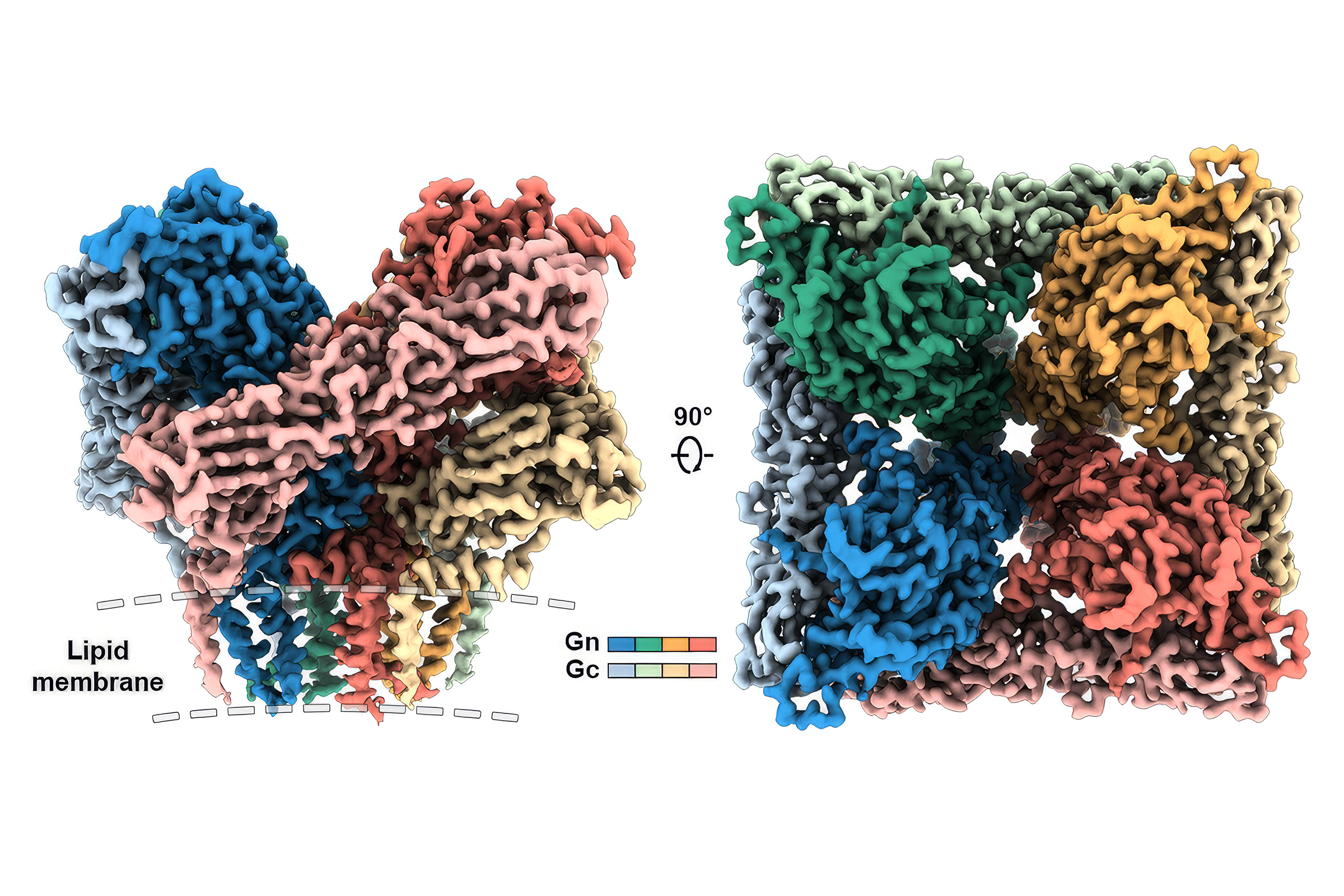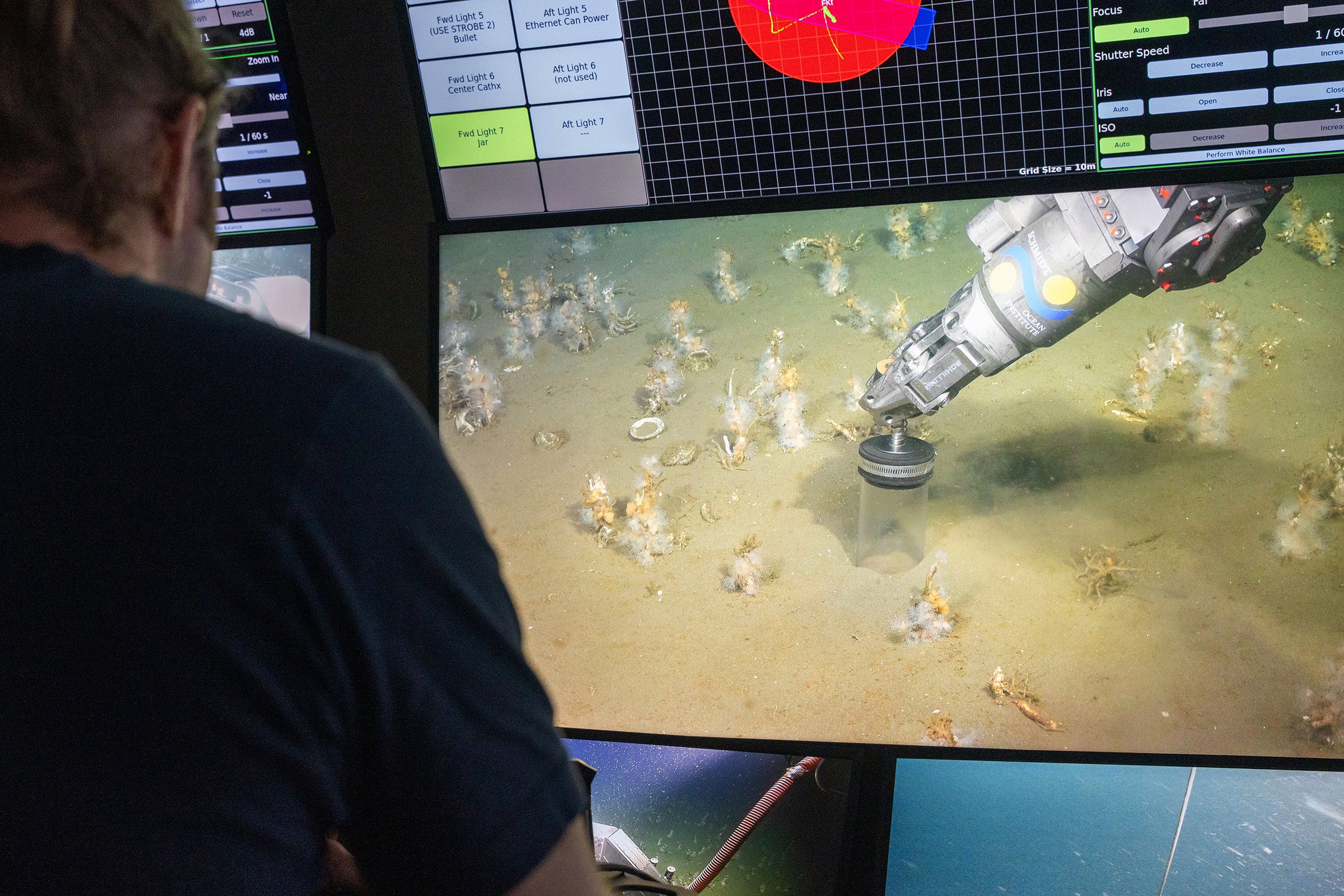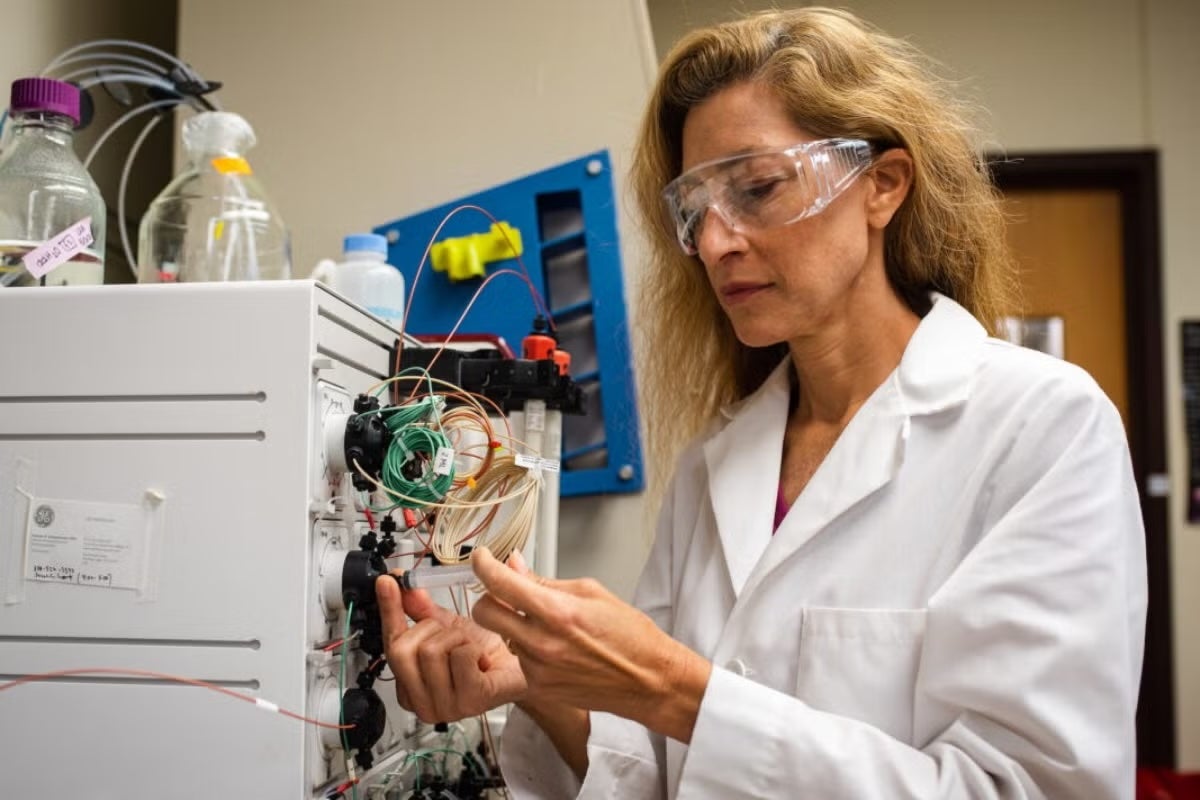Eyes on the Next Pandemic
Lauren Ancel Meyers leads a National Science Foundation-funded pilot grant to establish the UT Center for Pandemic Decision Science.

It’s not a matter of if another pandemic will hit, but when — and how we’ll handle it. A team of world-renowned collaborators led by UT experts and backed by the National Science Foundation is getting ready to combat the next global contagion.
During the COVID-19 pandemic, rapid decision-making was a key factor in saving lives, particularly for vulnerable communities who were at a higher risk for hospitalization and death. Even with the lessons learned about the SARS-CoV-2 virus, though, we’ll have to start all over again next time.
But Lauren Ancel Meyers, Ph.D., has been preparing for decades.
Meyers, a professor in the Department of Integrative Biology at UT’s College of Natural Sciences, studies network epidemiology with an eye toward translating data for public health.
In 2020, she founded the UT COVID-19 Modeling Consortium, which partnered with City of Austin and regional hospitals to design a staging system for tracking the changing COVID risks and adapting local policies accordingly. One key result: The mortality rate in Austin was less than half the national and statewide averages.
It's this collaborative, team-based approach that’s guiding a National Science Foundation-funded pilot grant to establish the UT Center for Pandemic Decision Science, led by Meyers. It includes the voices of clinician-scientists like Michael Pignone, M.D., chair of Dell Med’s Department of Internal Medicine.
“A good pandemic response considers both public health goals, like preventing infections, and societal goals, like safeguarding education and economic well-being. It can be a delicate balancing act that requires the expertise of scientists, social scientists, clinicians, engineers and public officials,” Meyers says. “At UT, we had the unique opportunity to bring science and data to the front line of COVID-19 decision-making. Our new center will leverages the knowledge and relationships we built over the last three years to propel the pandemic science forward and ensure that the globe is much better prepared for the next major pathogen threat.”
Advice From the Front Lines
The new center includes more than 40 investigators across 11 institutions, all aiming to close gaps in understanding how to accurately surveil diseases — and to quickly model outcomes when those diseases begin to spread.
Input from physicians like Pignone means that modeled data can be better translated to help policymakers determine the best course of action based on health care resources.
“There are a lot of practical considerations that we can provide to modeling teams to help sway those decisions,” Pignone says. “For example, when someone goes into the ICU, we can explain what’s likely to happen next or how many patients an ICU can reasonably accommodate, or what kind of workforce is needed to take care of X number of people in the first place. Or when we get the pandemic response under control and then flu season hits, we’re better prepared to adjust for those factors.
“These things all have relevance to the general population, but are especially crucial for vulnerable populations, which we saw hit earliest and hardest with COVID. In that way, we’re tackling not only disease, but health equity.”
This article originally appeared on the Dell Medical School website



